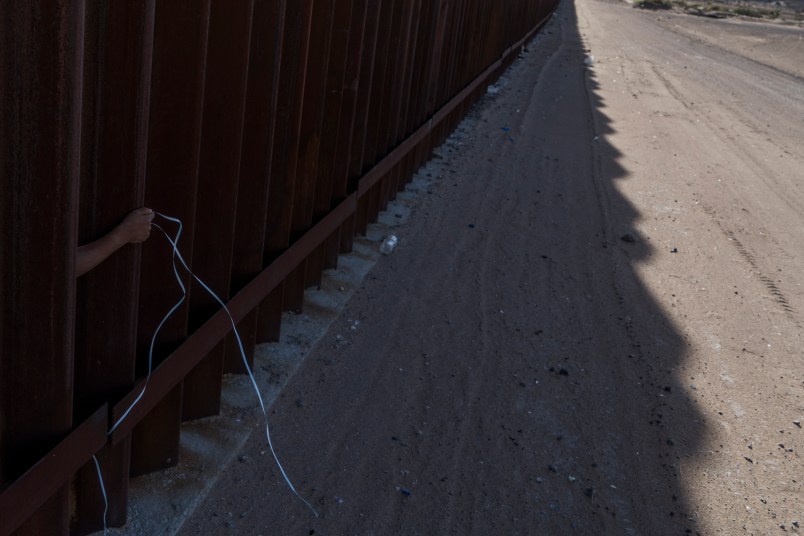The Department of Justice appears confident the shutdown stalemate will end favorably for President Trump and his border wall pet project.
According to a new Politico report, the DOJ has posted job openings on a federal job website advertising an opening for two attorneys to help handle land seizure litigation along the southern border in Texas. The gigs will pay between $53,062 and $138,790 and are based in McAllen and Brownsville, Texas, according to the posting flagged by Politico.
The department is looking for candidates who have “at least four years of civil litigation experience [dealing with] land condemnation cases, oil and gas disputes, and real estate matters,” the posting said.







Well, any so-called attorney committing to take land from Texas ranchers for this idiotic useless wall will instantly put a target on their backs, and they know it.
P.S. While the shutdown continues you won’t be getting paid, of course, but please apply.
Maybe this will turn Texas blue.
… And ex-military Special Forces experience preferred…
Don’t think the ranchers are going to go down without a fight.
The federal government owns less than one-third of the land on the southern border. The rest belongs to other entities, including states, Native American tribes, and private individuals. Most of the border land in Texas is private property.
Not a problem, said Trump: “You have to use eminent domain,” he declared. That’s when the government forces a property owner to sell, at a price set by the government. “If we had one person that wouldn’t sell us…then we wouldn’t be able to build proper border security because we’d have that big opening.”
“I think it’s a fair process,” he added.
And what happens if Trump can’t seize people’s land with normal eminent domain? That’s where the “military version” comes in:
Trump floats the idea of using “the military version of eminent domain” to immediately seize privately owned land along border to build the wall
— Josh Lederman (@JoshNBCNews) January 4, 2019
As explained, “[Lawsuits are] not going to hold [the wall] up because under the military version of eminent domain and under, actually, homeland security we can do it before we even start.”